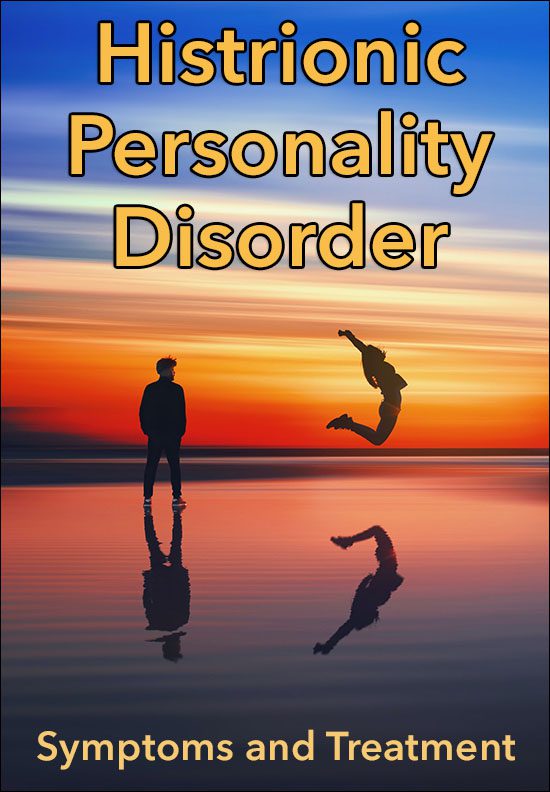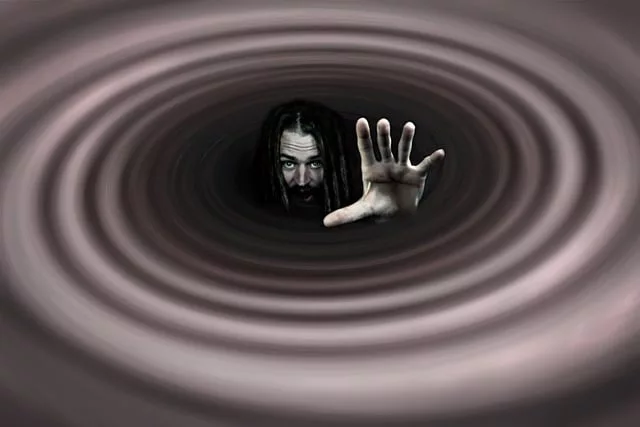Histrionic Personality Disorder (HPD), like many personality disorders, can be difficult to diagnose, and can cause significant impairment in a person’s life.
Our personalities affect the way in which we see ourselves, relate to others and interact with the world around us.
A personality disorder, like Obsessive-Compulsive Disorder (OCD) or Avoidant Personality Disorder (AVP), occurs when a person’s perception of themselves and the world around them negatively and severely impacts their ability to function.
Personality disorders are not uncommon. While it’s estimated that around 9 percent of the population struggles with these mental health conditions, only around 2 to 3 percent of the general population struggle with HPD, according to an epidemiological study of the disorder.

What is Histrionic Personality Disorder?
Histrionic Personality Disorder is a psychiatric condition that falls into what psychiatrists refer to as “Cluster B” personality disorders.
These are diagnoses like borderline personality disorder, narcissistic personality disorder and antisocial personality disorder.
With these types of “Cluster B” disorders, people are often described as being erratic, excitable, impulsive, volatile or dramatic.
Individuals with an overly histrionic personality are commonly seen as charming, flirtatious, inappropriately seductive, or manipulative.
People with this disorder will often go to great lengths to make sure they’re “the life of the party” or self-identify as having a personality that’s “larger than life.”
Because people with HPD are likely to overestimate the intimacy of their relationships with others, living with this disorder can cause significant mental impairment, especially when a person feels that they are underappreciated.
This may drive them into more attention-seeking behaviors, causing outsized public displays of emotions that embarrass family and friends.
Part of the reason it can be so difficult to function normally with HPD is that a person is highly suggestible or easily influenced by those they admire.
When that relationship dissolves or is otherwise revealed to be less important than they perceived, a person with HPD can spiral into depression.
What are Typical Histrionic Personality Disorder Symptoms?
The Diagnostic and Statistical Manual of Mental Health Disorders (DSM-5), is considered the standard for diagnosing mental illness, and requires that a person display five or more symptoms from the list below in order for an HPD diagnosis.
DSM-5 Histrionic Personality Disorder Symptoms include:
- Constant reassurance or approval seeking
- Uncomfortable when not the center of attention
- Overly self-centered
- Exceedingly concerned about their physical appearance
- Uses physical appearance to gain attention
- Inappropriate seductive behavior or manner of dress
- Rapid changes in emotion that come off as shallow or untrue to others
- Outsized displays of emotion or dramatics
- Frequently overestimate the intimacy of their relationship with others
- Co-opt the opinions of those they admire or believe to be important, though are generally unable to support these beliefs with facts
- Are gullible and easily influenced by others

What Causes HPD?
Like other personality disorders, the exact cause of HPD is not certain, though research has shown that both genetics and a person’s childhood environment can play a large part in this diagnosis.
The prevalence of histrionic personality disorder is likely equal among women and men, but women are more often diagnosed because it less socially acceptable for women to display sexual and attention-seeking behavior.
Because people living with HPD can perform at a high level, very often excelling in professions that require a lot of social interaction, their mental impairment might “fly under the radar” or be seen by others as simply eccentric.
However, there are issues that can bring this disorder to the forefront. A person with HPD does not usually have a realistic sense of their own responsibility in relationships and or, for example, their fault in any professional mistakes. They are more likely to blame others for failure even if their inappropriate behavior is clear to everyone else around them.
Another issue that commonly creates problems with this disorder is the desire for excitement. This may drive a person to engage in risky behaviors, such as having unsafe sex or regularly binging on drugs and alcohol.
With the high-intensity levels of emotion and behavior, especially when a pattern of substance abuse is present, individuals with histrionic personality disorder are at an increased risk of experiencing a “crash” and developing depression.
Histrionic Personality Disorder Treatment
As with any dual diagnosis, which is the presence of a mental health disorder and addiction together at the same time, both conditions must be treated simultaneously in order for recovery to be lasting and successful.
Drugs and alcohol worsen the symptoms of any mental health condition and without addiction treatment, they will continue to mask the underlying causes that drive both problems and make recovery difficult.
If addiction has been successfully treated or is not present in a person with HPD, solution-focused psychotherapy is the recommended treatment for this disorder.
Histrionic Personality Disorder can develop during the teenage years and this can make if difficult to diagnose because many teens exhibit HPD symptoms as a normal part of being a teenager.
If this is the case, therapy can help them identify this behavior and work on developing skills to overcome the behavior. Sometimes family therapy can be a helpful method of treatment.
HPD Treatment Therapy
There aren’t any medications used to specifically treat HPD, although if depression becomes an issue related to the disorder, antidepressants can be used to target those symptoms.
It will likely take time for a patient to come to terms with the reality of their disorder, but approaches such as Cognitive Behavioral Therapy (CBT), which gives people tools to process the relationship between their thoughts, feelings and behaviors, can be effective.
Dialectical Behavior Therapy (DBT) is similar to CBT and has also shown to be quite effective for treating Histrionic Personality Disorder because it sometimes focuses on social functioning.
Treatment is available for anyone concerned that HPD, or any personality disorders for that matter, are causing problems with work, social relationships, substance use addiction, or other mental health issues.
It’s important to seek help and get a proper diagnosis early before other symptoms manifest or daily life becomes too difficult to manage.
Related:
Famous People With Borderline Personality Disorder
Situational Depression: Causes, Symptoms and Treatment





